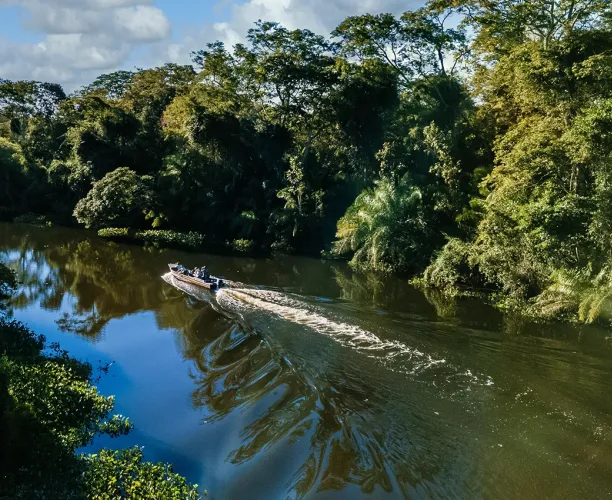

Understanding Thailand's Stance on COP30
A new Ipsos Global Advisor survey on Public Attitudes to COP30 reveals that Thai citizens hold a notably optimistic outlook on the UN climate conference, significantly exceeding the global average. While the world remains divided on the potential impact of the conference, the public in Thailand shows strong conviction that the summit will deliver tangible results.
Key Findings in Thailand
- Awareness and Effectiveness: While globally, only 34% think COP30 will produce effective outcomes, Thailand stands out with an impressive 70% who believe the conference will be effective—a stark contrast to the prevalent skepticism observed in Europe and North America.
- Business and Environmental Responsibility: Similar to the global sentiment where 69% feel companies prioritize profits over the environment, 70% of Thais hold this belief. This aligns with concerns in other nations regarding corporate environmental responsibility.
- Political Will: Lack of political will is recognized globally as a barrier to climate goals (42% globally), with 46% of Thais echoing this sentiment. However, Thailand places a significant emphasis on requiring wealthy individuals to bear more climate-related costs.
- Environmental Funding: 37% of survey respondents in Thailand emphasize the need for reallocating resources to protect and reforest areas—a sentiment aligning strongly with global views on lacking enforcement against deforestation.
- Obstacles Unique to Thailand: 30% identify agribusiness pressure as a barrier to environmental progress, slightly diverging from global perspectives focusing primarily on political and enforcement issues.
Unprecedented optimism on COP30’s effectiveness
The most striking finding for Thailand is the high level of confidence in the conference's ability to drive change.
- 70% of the Thai public say they believe COP30 will be effective and bring concrete results in the fight against climate change. This places Thailand among the most optimistic nations surveyed, aligning with the general trend of higher optimism across Asia and Latin America.
- In stark contrast, the global average shows a far more skeptical sentiment. Across 30 countries, only 34% think COP30 will be effective, with nearly half (49%) viewing the conference as merely symbolic without real change.
- For Thai citizens, only 23% view the event as symbolic, reinforcing the nation's strong belief that the negotiations will lead to meaningful outcomes.
Shared global scrutiny on business accountability
While optimistic about the conference itself, Thai opinion is largely in lockstep with the global public when it comes to scrutinising the role of the private sector.
- A majority of the public in Thailand (70%) believes that companies prioritise profit over environmental care.
- This view is almost identical to the global average, where 69% of respondents across 30 countries feel that businesses put financial gain ahead of the environment.
- Globally, this strong belief translates into a clear public demand, with 65% on average feeling that companies and industries should be required to allocate a portion of their profits to fund climate action. Furthermore, the Thai public also indicates a preference for financing solutions, with 57% thinking that very wealthy people (billionaires) should bear most of the costs of combating climate change.
Obstacles: a focus on enforcement and political commitment
When asked about the main obstacles to meeting climate goals, Thai citizens pinpoint the need for stronger governance and decisive political action.
- The top perceived obstacle in Thailand is the lack of enforcement against deforestation and pollution, cited by 49% of the public. This issue is a higher priority in Thailand than the global average for the same concern, which stands at 34%. This highlights a critical domestic challenge where the public sees better enforcement as essential to making progress.
- Following closely, lack of political will from government leaders is the second biggest concern for Thai citizens (46%). This figure is also higher than the global average of 42%, which positions political will as the single biggest obstacle worldwide.
- Other significant barriers identified by the Thai public include the lack of funding for environmental projects (37%) and pressure from agribusiness sectors opposed to environmental restrictions (30%).


